#Faustliteratur
Explore tagged Tumblr posts
Text

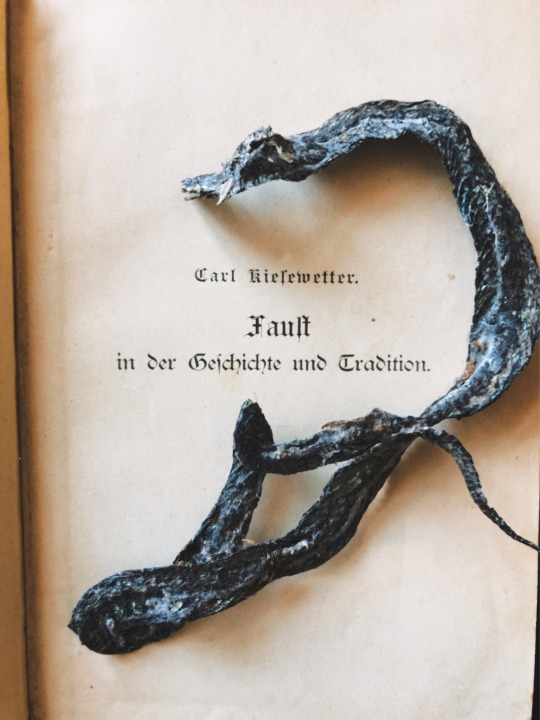
"Faust - In History and Tradition with consideration of occult phenomena and medieval magic" with additional attachment of the Wagnersage, by German occultist and theosophist Carl Kiesewetter. First press, published 1893, with several illustrations and graphics.

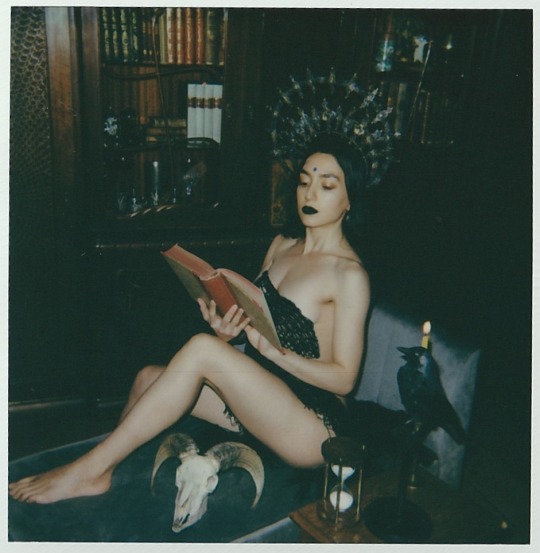

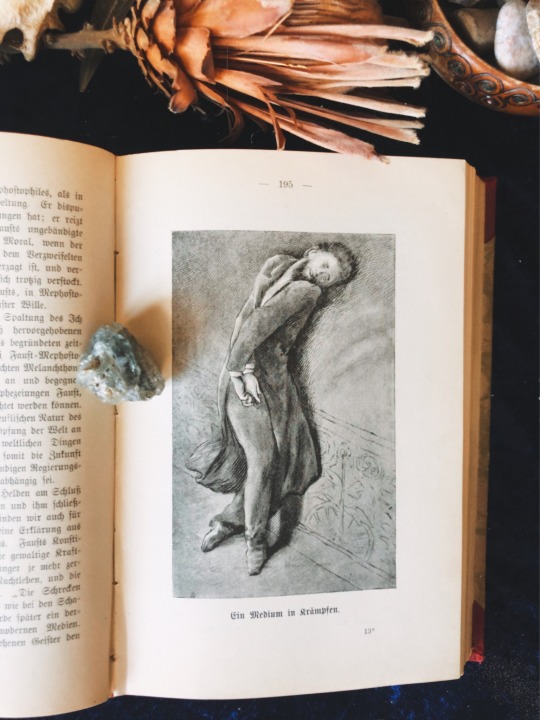
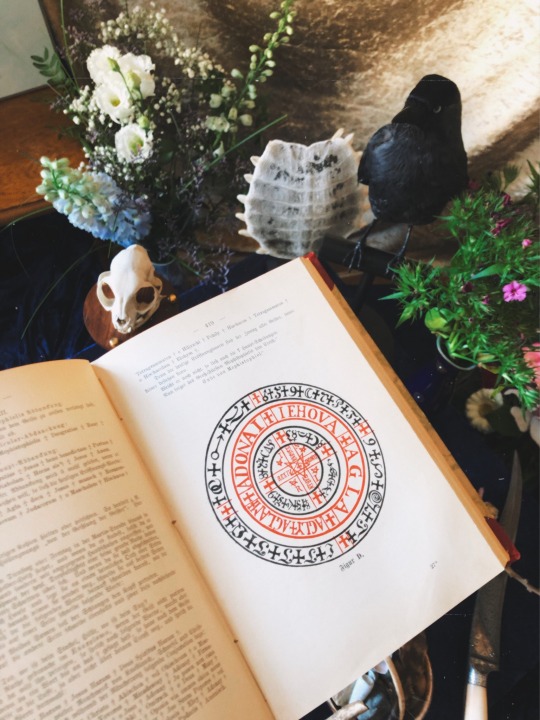
For me, reading occult literature is another form of broadening the horizon. Like in other systems, it can be challenging to be fully capable of the meanings behind abstract terms, but how language must been experienced, also newly learned must get it's vibrancy through mental work. In this work Kiesewetter tries to present the tradition of Faust in regards to the particular Zeitgeist. An aim is also to take the reader into the occult atmosphere in which persons like Paracelsus, Agrippa von Nettesheim, Thrithemius and of course Faust (or to put in another way: The versions of the many Fausts, that are based on several historical persons...) have lived and which (Ancient) works influenced them.
Of course can theosophic speculations be considered as borderline science, parascience or as a science "on the edge", but nevertheless, it is indisputable an interesting journey to the beginning of rituals and habits, based on superstition. Like understanding why blood is so important for the Deal with the Devil, can be found in Ancient Hebrew culture or if you ever asked yourself, why the money of the Devil is transforming into filth, the roots can be traced back to Germanic belief. How Theurgy was first defined by Philo and how neo-Platonists integrated Ancient knowledge into the Bible... Also very interesting are the different methods of foretelling the future, e.g. Scyphomancy is considered as the oldest form of forecast, the roots can be traced back to both Ancient Egypt and Persia.
If you have read the version of Goethe, it will be fun to discover, how many different aspects he has interwoven into his tragic play. It was instructive to read this substantial extensive research of 27 years, collecting the knowledge of centuries and to discover fields for extended research and read-worthy books, again.

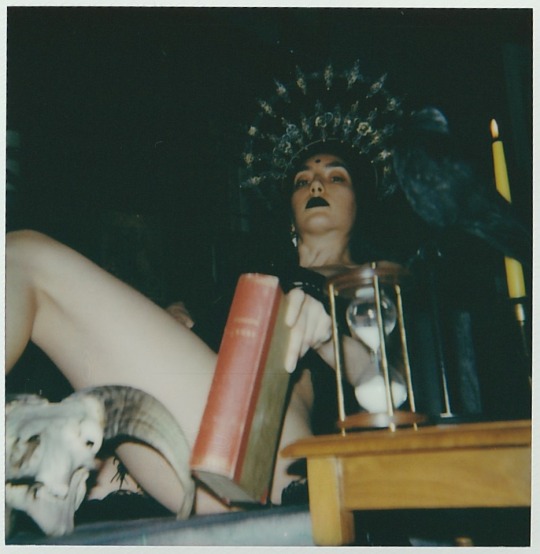
#literature#occult#occult culture#magick#Faustliteratur#Faustus#Faust#Kiesewetter#Goethe#German literature#spirituality#alchemy#theosophy#dark#19th century#first edition#bookworm#book cover#antiquarian book#antiquarian#philosophy
44 notes
·
View notes
Text
“Eritis sicut deus scientes bonum et malum.”

Goethe, Wolfgang "Faust: The Second Part of the Tragedy", published originally in 1832 (year of Goethe's death), this wonderful edition was illustrated by painter, author, professor for art: Max Beckmann during his years of exile in Amsterdam 1943-1944. 143 pen drawings on Büttenpapier. Comissioned by publisher and friend Georg Hartmann, prior to that, he engaged Beckmann 1941 with lithographies for "Apocalypse". 1943 Hartmann suggested "Don Quijote" (favourite book of Beckmann) and "Faust" (Hartmann was a big adorer of Goethe and both where born in Frankfurt).


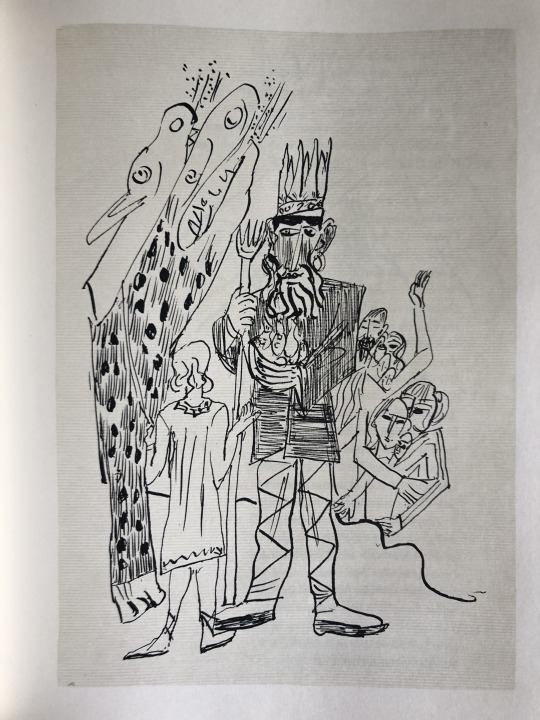

"Whoever aspiringly strives, we can redeem."
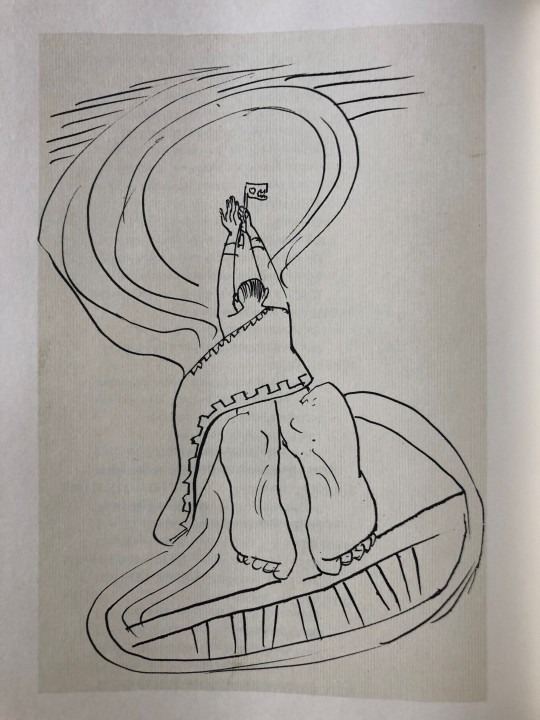
"This is the last word of wisdom: Only he deserves freedom as well as life, who has to conquer it daily."
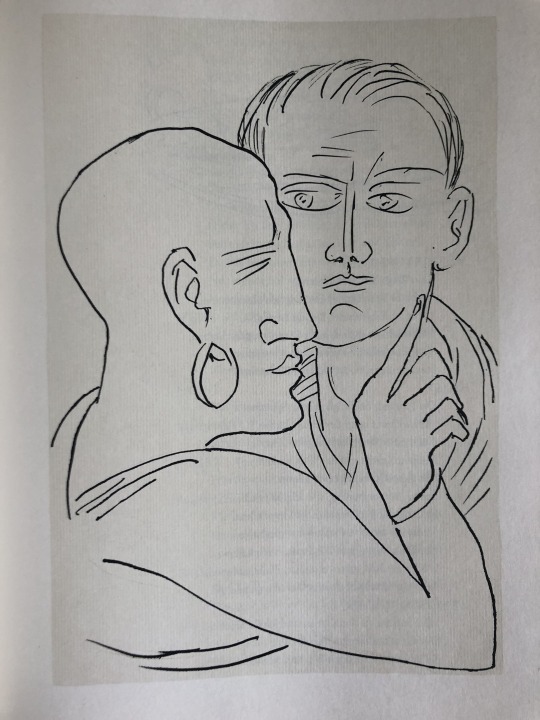
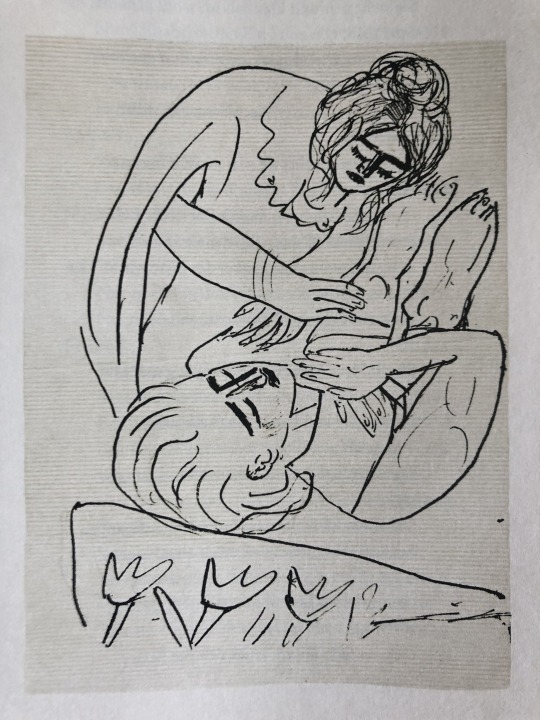
"The deed is all, not the glory."

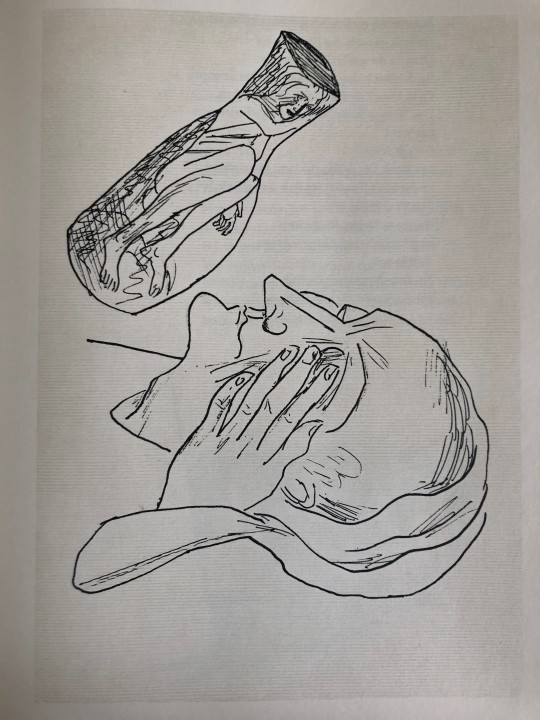

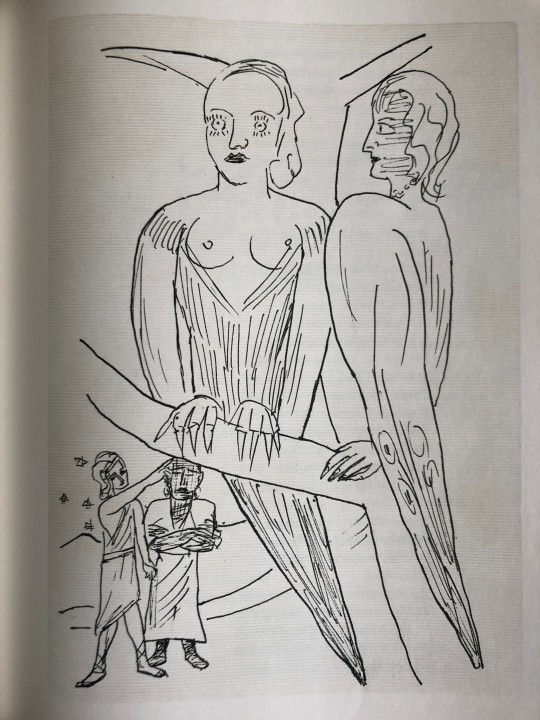
"High should the double-win be appreciated: Becoming mercy and at the same time, bringing joy."

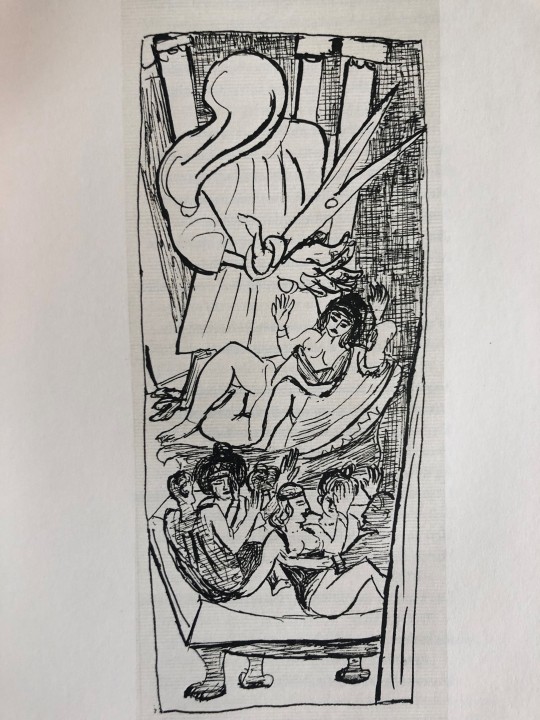
"War, trade and piracy, triune they are, inseparable."
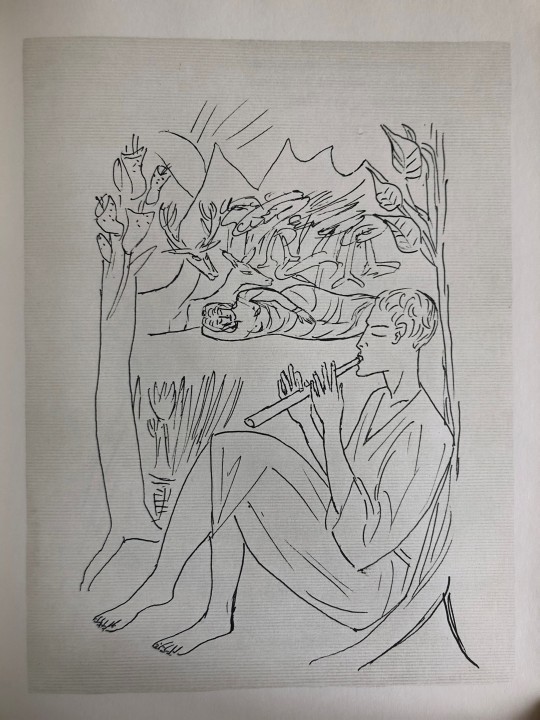

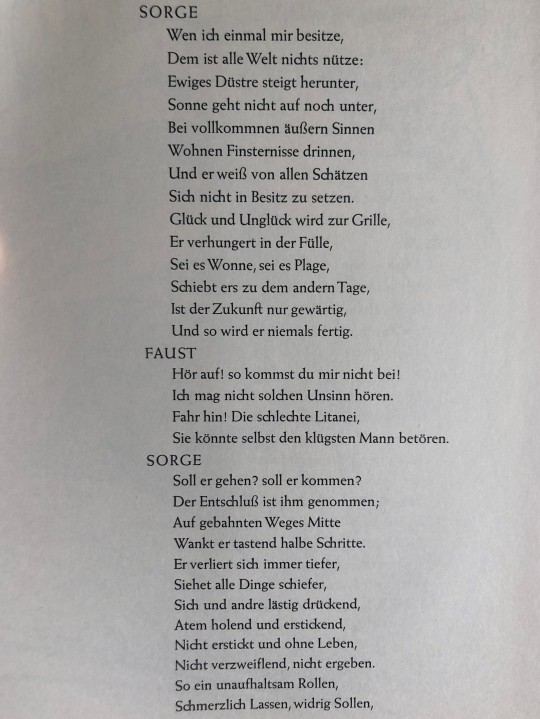
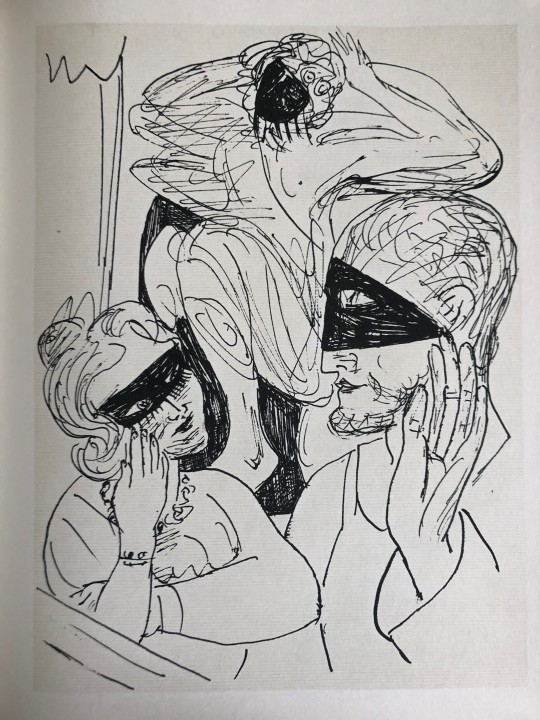
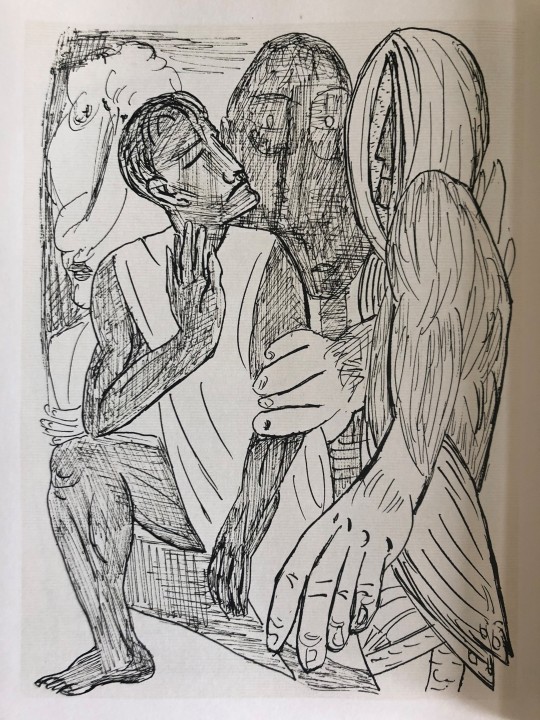

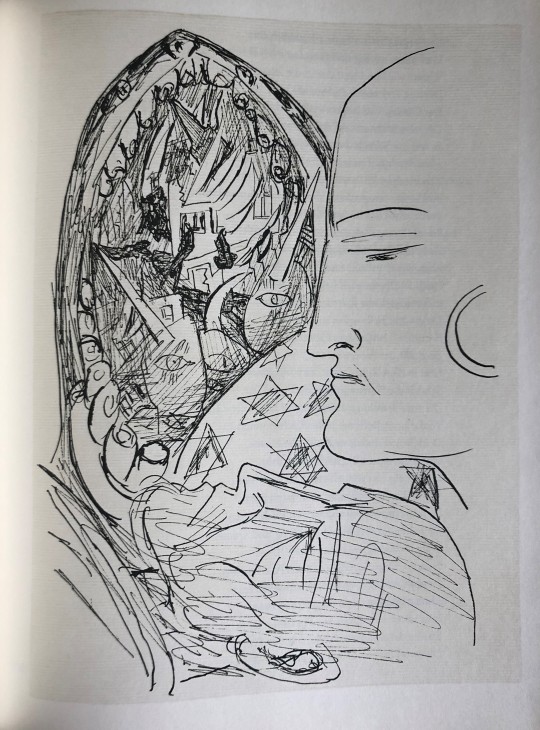
"How earnings and luck are linked togehter , fools never think of that; When they would have the philosopher's stone, the wise lacks the stone."
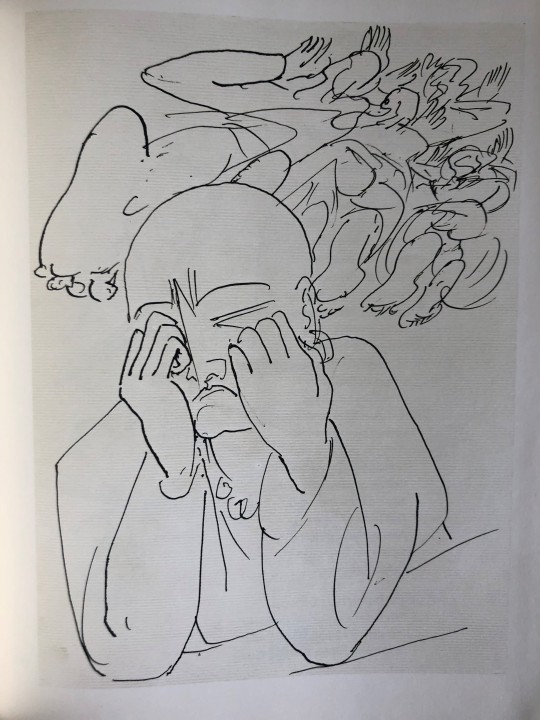

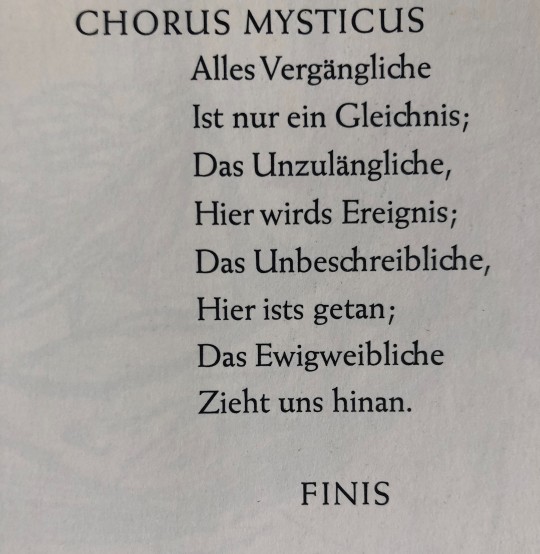
Beckmann is melting words and visions, letters becoming symbols and every drawn line's narrating the story. It must have been hard circumstances under which he had to work, bombing and insomnia, Weltekel and terrible pain, alienated by the great writer and poet Goethe:
"State of copious hopelessness- and the relation to the Ur-Alten [Goethe] is opaque as ever." (Diary-entry, July 1943)
Despite it, Beckmann was able to finish this project, continued to drink his wine and poured out love and sorrow, seriousness and play. Creating the figures in his hand and bringing dynamically to life. As in the poetry the world is vividly described, Beckmann recreated the Faust Legend, letting his countentance shining through and incredibly intensifying the reading experience.
#Faust#Faustliteratur#Johann Wolfgang von Goethe#Goethe#Faust II#literature#book#illustrated classic#tragedy#German cultural heritage#Beckmann#Max Beckmann#art in exile#exile art#exile#Neue Sachlichkeit#book illustration#book cover#bookworm#world literature#bücherwurm#Mephistopheles#1943#pen drawings#drawings
2 notes
·
View notes